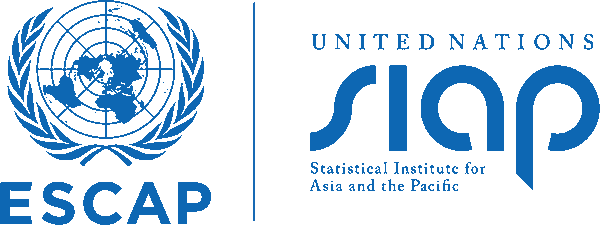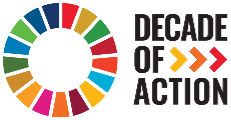
News[2022]
12 December - 15 December 2022 | Chiba Japan, Online |
Eighteenth session of the Governing Council of the Statistical Institute for Asia and the Pacific/Eighth meeting of Network for the Coordination of Statistical Training in Asia and the Pacific/ Seventeenth Management Seminar for the Heads of National Statistical Offices in Asia and the Pacific
All the events will be organised in Chiba, Japan and online mode between 12 and 15 December 2022. The Council, in the session, will consider several issues, including the report of the Director on its achievements in 2022 and the proposed work plan for 2023. For the Network, the subgroup on gender statistics will report their activities and the Network will discuss further development of training on environment statistics. Management Seminar will be organized by SIAP, in collaboration with Statistics Division of the United Nations Economic and Social Commission for Asia and the Pacific, and the Ministry of Internal Affairs and Communications, Government of Japan (MIC). The seminar aims to strengthen the leadership and management capabilities of the heads of NSOs by providing a forum to discuss, exchange views and share experiences. The theme of this year’s seminar is related to Data Governance. The seminar will draw on the experience of participants in the areas of data stewardship and data governance.
3 October-18 November 2022 | Online |
e-Learning course Introduction to energy statistics and energy accounts
This course introduces concepts relevant to compiling energy statistics and accounts, including compilation of relevant SDG indicators. The topics covered include physical supply and use tables, asset accounts, valuation and data sources. Webinars will also be held as part of the course to provide an overview of the topics and allow participants to ask questions. Following the completion of the course and depending on resource availability, in-kind support will be provided to countries interested in the compilation of the energy accounts using tools that will be introduced and discussed during the course.
26 September – 11 November 2022 | Online |
e-Learning course Foundational course on Statistical Business Register
Statistical Business Registers (SBRs) are part of the statistical infrastructure and form the backbone for producing economic statistics that meet the increasing demand for better integrated, coherent, and comparable statistics across countries and statistical domains. This course is designed to provide a strong foundation for the concepts, methods and framework required to build high-quality and viable SBRs. This will facilitate the international harmonization of economic statistics in terms of coverage, statistical units, and frame methodology.
25 October – 27 October 2022 | Online |
Training on Register-based Population and Housing Censuses (PHC)
The objective of the workshop is to build participants’ knowledge and skills in the use of register-based censuses to produce official statistics as an alternative to the traditional census, while also providing a platform for exchanging experiences and lessons learnt in transitioning to this approach.
24 October – 28 October 2022 | Hybrid |
Technical Workshop on Statistical Literacy and Capacity Development for the Pacific
The main reason for this workshop is to bring representatives of National Statistical Offices (NSOs), National Statistical System (NSS) and Planning Departments made up of Line Ministries responsible for planning and policy making at the national level (Data Users) to discuss the challenges around Statistical Literacy and Capacity Development in the Pacific.
18 October – 20 October 2022 | Online |
Workshop on Managing Social Media for NSO Communications
The workshop is to explore the potential benefits and pitfalls, as well as presenting a number of case studies from peers in the region to dive more deeply into specific contextual examples. Platform-specific experts will provide insights into how to communicate persuasively across Twitter, Facebook and LinkedIn, and National Statistical Offices (NSOs) will have opportunities to share their own experiences and discuss best practices.
19 September – 30 September 2022 | Online |
Training of Trainers: Improving facilitation skills,facilitated remote workshop
The objective of the workshop is to provide staff of national statistical systems with tools, methods and techniques for improved facilitation and communication in a workshop setting, including remote trainings. Topics to be covered during the workshop include: “Questioning, Listening & Responding Skills”, “Discussion leading process” and “Preparing a session plan”. At the end of the workshop participants will also practice the facilitation skills they have learned during the workshop.
1 August – 9 September 2022 | Online |
e-Learning course Introduction to the System of Environmental Economic Accounting (SEEA): Central Framework
This course introduces the SEEA Central Framework, the international statistical standards for measuring the interactions between the environment and the economy. By providing an internationally agreed standard with agreed concepts, definitions and classifications, the SEEA is an invaluable tool for compiling integrated information on the economy and the environment. The SEEA uses concepts, definitions and classifications consistent with the SNA in order to facilitate the integration of environmental and economic statistics. By doing so, the SEEA allows users to develop indicators (including SDG indicators) and conduct analysis on the economy-environment nexus.
4 July – 12 August, 2022 | Online |
e-Learning course Health Statistics for Monitoring Sustainable Development Goals (SDGs) 2022
Timely, reliable, and comparable health statistics are fundamental to monitoring the health status of the population and for developing, implementing, and evaluating health policies and practices that address health and health care. With the adoption of the 2030 Agenda for Sustainable Development, the need for high-quality data for the over 50 health and health-related Sustainable Development Goal (SDG) indicators has increased. The COVID-19 has impacted the health and well-being of populations all over the world and further underscored the need for real-time, good quality, disaggregated data to track health. Nonetheless, for many countries, limited statistical capacity continues to pose a major challenge for monitoring the health and health-related SDGs. The objective of this e-Learning course is to address this issue by providing a general understanding of the basic concept, methods and framework required to compile and monitor the health and health-related indicators.
11 April - 10 June, 2022 | Online |
e-Learning course System of Environmental Economic Accounting: Ecosystem Accounting (SEEA EA)
The course introduces the SEEA EA, the international statistical standard for organizing data about ecosystems, measuring ecosystem services, tracking changes in ecosystem assets, and linking this information to economic and other human activity. The SEEA EA framework takes a spatial approach to organizing information on ecosystems. It supports the compilation of indicators for several global policy frameworks including the 2030 Agenda for Sustainable Development and related SDG indicators and the Post 2020 Global Biodiversity Agenda. The SEEA EA complements the accounts compiled in the SEEA Central Framework (SEEA CF) and together, SEEA EA and SEEA CF, provide a comprehensive framework for organizing data on the relationship between the environment and economy.
7 March – 1 April 2022 | Online |
e-learning Course on Measuring material flows in the SDG
This course introduces concepts relevant to compiling economy wide material flow accounts (EW-MFA); it also covers the methodologies for the SDG indicators 8.4.1/12.2/1 and 8.4.2/12.2.2. EW-MFA represents a framework for describing the interaction of a domestic economy with the natural environment and the economy of the rest of the world in terms of flows of materials, waste and emissions. They are part of the broader System of Environmental Economic Accounting (SEEA) which is the international statistical standard for measuring the relationship between the economy and the environment.
14 February – 11 March 2022 | Online |
The Second Online Course on Crime Statistics from a Gender Perspective
The online course on crime statistics from a gender perspective will highlight basic concepts, methods and frameworks required to compile crime statistics in relation to gender and provide knowledge on the challenges and opportunities of working with different types of data sources (administrative data, sample surveys).
24 January - 4 March, 2022 | Online |
e-learning Course on Principles of Data Visualization for Official Statistics and SDG Indicators
The course provides an opportunity for participants to explore and comprehend the techniques of data visualization for data exploration as well as for data presentation. Participants will discover, evaluate and apply the rules of data visualization on devoted cases studies and also tackle the problem of visualizing complex data. The course proposes strategies for visualizing in multi-dimensions as well as presenting the practical methods for representing statistical indicators on maps or within dashboards.
10 January-18 February 2022 | Online |
e-learning Course on Compiling climate change indicators: an accounting approach
This course will focus on climate change indicators that can be compiled from environmental economic accounts. After a brief overview of climate change and, relevant polices and multilateral agreements, participants will learn how to compile various indicators that inform climate change. The focus of the course is on better understanding the relationship between climate change and economic activity. And the statistical framework that provides the concepts, definitions, and methodology for measuring this relationship is the System of Environmental Economic Accounting. In particular, participants will learn about physical supply and use tables for energy and air emissions, and indicators that can be compiled from these accounts. Other topics to be discussed include transaction accounts which can be used to derived expenditure type indicators such those on taxes on energy and pollution.
